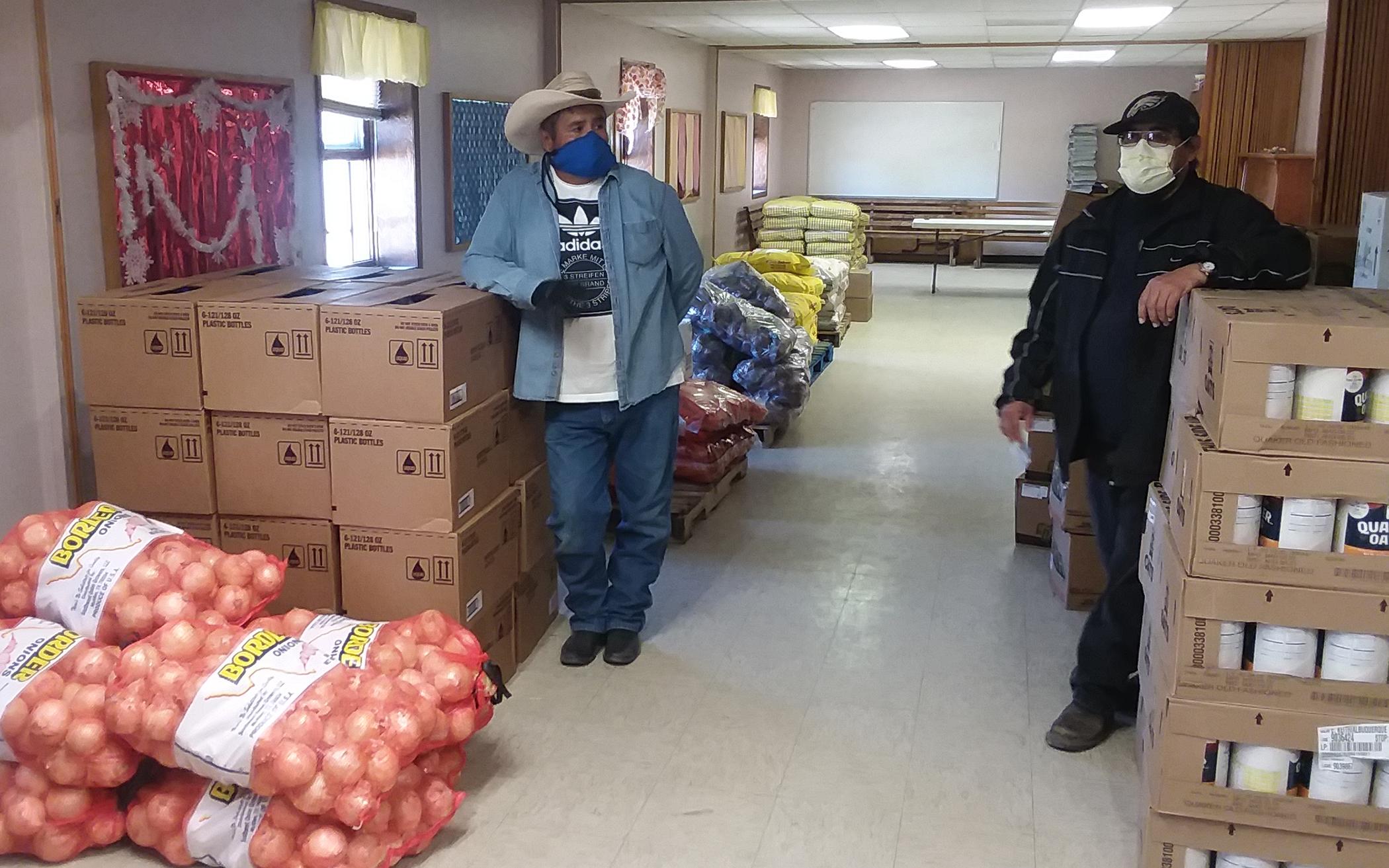For the past month, the highest per capita coronavirus infection rates in America and the strictest lockdown measures have been in the Navajo Nation. Bethel Christian Reformed Church stands on Navajo land in New Mexico, on the floodplains of the San Juan river and tucked in between two major highways. In this precarious time for the community, Bethel CRC is serving as a food distribution hub in multiple ways. (See also “Delegate Relays News of COVID-19 Impact in Navajo Land.”)
On May 25, a shipment of bulk food worth almost $9,000 arrived. It was paid for by a $5,000 grant from World Renew and by the fundraising contributions of a community member who now lives in Northwest Minnesota and who, together with his father, raised $8,000. That money went toward this bulk shipment, purchasing gas cards for those who delivered the food, compensating some young volunteers, and standing in reserve against needs later in the summer.
Related: Word Renew’s co-director (U.S.), Carol Bremer-Bennet, recently spoke with Christianity Today for a story called Tears on Red Soil: Navajo Evangelical Leader Hears Her Homeland ‘Crying Out’
Bethel CRC pastor, John Greydanus, asked churches in the northern part of Classis Red Mesa (the part of the regional group of churches in Navajo territory) to send names of people in their communities who might be under-served. “We were looking for the grandma who is home by herself, whose car doesn’t work anymore, and who lives beyond pavement. In other words, those who could really use help.”
The names kept coming, Greydanus said. “We had more people we could serve than we had food.” Just then, Rehoboth Christian School called offering their extra food boxes. “They ended up bringing 50 boxes to us, which meant that we were able to serve everybody on the list,” about 260 families.
Volunteers included young and retired people “who were scared but willing to come on out.” Recipients were grateful, not only for the food, but for being remembered, Greydanus said.
Bethel CRC has operated as a monthly food bank for almost 20 years. Two months ago, the State of N.M. Emergency Food Program asked them to make it weekly. Local radio stations announce the event in English and Navajo, and an average of 800-1,100 people come weekly. No one leaves their car. “The line is more than half a mile long,” said Greydanus. Drivers hold out IDs, share their household names and sizes, and open the car doors from the inside while a volunteer places the food inside. There are five stations, and the distribution takes about two hours. Fifteen volunteers serve, mainly from Bethel’s congregation. Greydanus said it wouldn’t be possible without the volunteers and the steady help of his wife Marcia.
Members of Bethel’s congregation are also experiencing difficulty at this time. Almost half the members don’t have adequate wifi to join Zoom services. Reopening the church will depend on the Navajo government’s decision and what Bethel’s council decides. It is an exhausting and anxious time, but the question still is, “How can I help here—how can I help there?” Greydanus said, adding it’s about responding to the people in front of you and “putting your faith in action.”
Next they have the prospect of handing out free homemade masks (donated unexpectedly by a Methodist church) and distributing greenhouse plants, tomato, chili/hot pepper, and squash, which Greydanus grows near the church property and hopes to provide at less than wholesale cost. “Ordinarily plants are given away at this time of year to low-income families by way of another Navajo program that is not running this year,” he said.
About the Author
Maia VanderMeer is a freelance news correspondent for The Banner. She lives in Mission, B.C.

